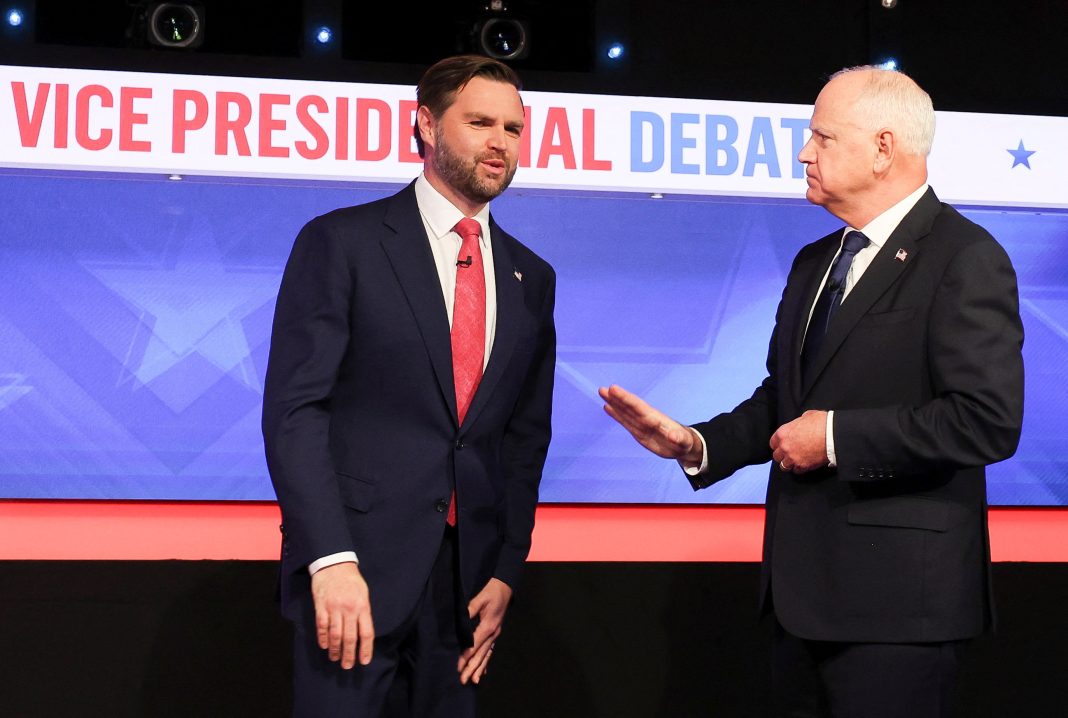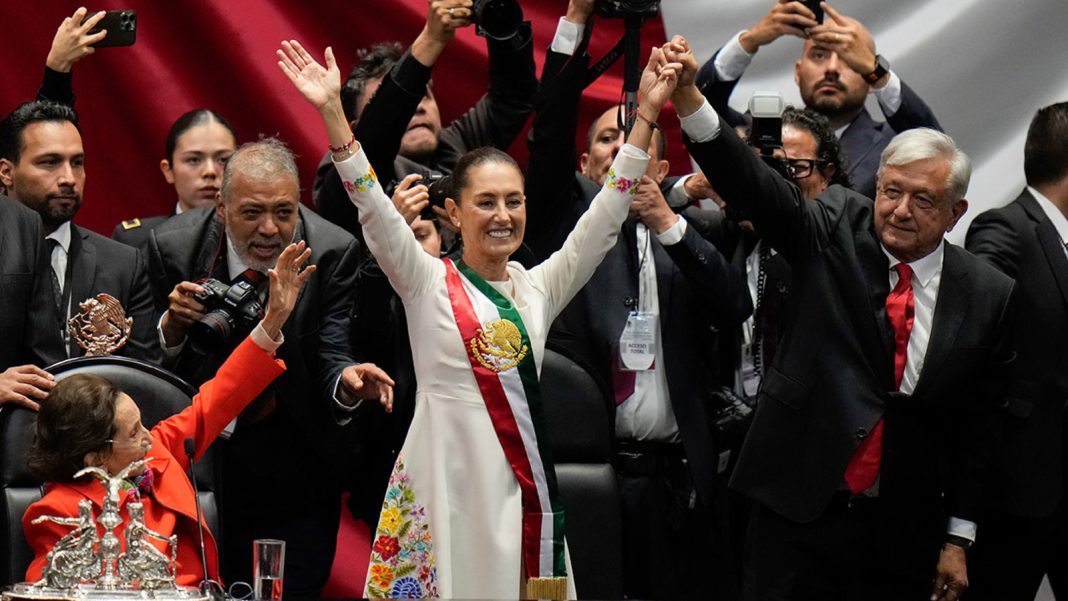In the wake of the recent vice presidential debate, a panel of political experts weighed in on the performances of Ohio Senator JD Vance and Minnesota Governor Tim Walz. Their insights reveal not only the candidates’ strategies but also the broader implications for the upcoming election cycle.
Hank Sheinkopf, a seasoned Democratic campaign consultant, succinctly captured the essence of the debate, describing the two candidates as “the most boring men in the world.” He characterized Vance as “slick” while dubbing Walz a “cornball.” This dichotomy set the stage for a clash that many viewers found underwhelming. Sheinkopf noted that Vance effectively targeted the Democratic vulnerabilities surrounding inflation, rising costs, and immigration issues, showcasing a polished performance that resonated with voters concerned about these pressing matters.
However, it wasn’t all smooth sailing for Vance. While he demonstrated a command of policy, his inability to address questions regarding child care and health care left him exposed. In contrast, Walz, despite his initial nervousness, found strength in discussing abortion and effectively criticized Vance and former President Trump over the January 6 riots. This moment, according to Sheinkopf, marked Walz’s best performance, highlighting his role as the candidate of compassion amid a tense political landscape.
Doug Muzzio, an emeritus public affairs professor at Baruch College, echoed Sheinkopf’s sentiments, emphasizing that Vance’s polished delivery came at the cost of authenticity. “Vance is a smooth articulate liar,” Muzzio remarked, pointing out that he often diverted questions to more comfortable territory rather than providing direct answers. In contrast, he praised Walz for connecting with the audience through a plain-spoken approach, stating that he appeared “warm, human, and likable.” Muzzio’s analysis raises a crucial point: in an era where authenticity often trumps polished rhetoric, Walz’s forthrightness may resonate more with voters seeking genuine engagement.
Republican strategist Rob Ryan offered a more critical perspective on Walz’s performance. He likened the Governor’s rapid eye movements to “a groundhog on meth,” suggesting that his demeanor could be off-putting to viewers. Ryan was particularly critical of Walz’s failure to address his whereabouts during the Tiananmen Square massacre, which he deemed a significant misstep. Conversely, Ryan praised Vance for his command of policy and confident demeanor, suggesting that this could soften his image among undecided voters.
Chris Coffey, a political consultant and former aide to Mike Bloomberg, highlighted the tactical shifts during the debate. He observed that while Vance attempted to move toward the center, his refusal to acknowledge Biden’s 2020 victory was a glaring omission. The moments where Walz confronted Vance on the Capitol riots and abortion were cited as his strongest points, even as Coffey noted Walz’s struggle with anxiety at the debate’s outset. This juxtaposition of confidence and vulnerability among candidates raises questions about voter perception and the importance of relatability in political discourse.
O’Brien ‘OB’ Murray, a campaign strategist, offered a more sweeping critique of the debate, suggesting it underscored the significance of the top of the ticket in this election. He pointed out that Walz’s discussion of issues was more substantive than Vice President Kamala Harris’s engagement in past forums. However, he noted that while Vance had a commanding presence, he lacked personal connection with voters, a crucial element in winning hearts and minds.
In summary, the debate between Vance and Walz served as a microcosm of the evolving political landscape, where authenticity and connection may outweigh mere eloquence. As the election cycle heats up, both candidates will need to refine their strategies, addressing not only the pressing issues but also the emotional resonance that voters crave. The panel’s insights provide a roadmap for understanding the dynamics at play, highlighting the need for candidates to balance policy knowledge with genuine human connection.

